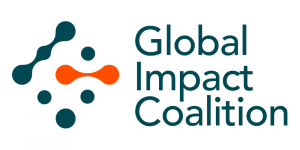Global Impact Coalition’s First Year Delivers Breakthrough Projects for Chemical Industry Sustainability
Uniting industry leaders with >$230B in revenues, the Global Impact Coalition achieves high-impact, scalable progress toward net zero and circularity.
To realize this ambitious mission, the Global Impact Coalition serves as both an incubator and accelerator, steering industry collaboration from initial concepts to project spin-offs at speed, scaling sustainable technologies, and pioneering new business models in the chemical sector. Collaborating with a global network of around 100 senior industry experts, the GIC engages companies generating over $230 billion in annual revenue to drive change through collective innovation.
"The sustainable transformation of the chemical industry requires collective action. Individual efforts alone will not enable us to meet global net zero and circularity targets. In only its first year, the Global Impact Coalition has proven to be a powerful catalyst, offering members a vital space to advance breakthrough technologies and move from collaborative projects into innovative business models—accelerating the industry’s shift toward sustainability." says Charlie Tan, CEO of the Global Impact Coalition.
In its inaugural year as an independent entity, during one of the chemical industry's most challenging economic periods, the Global Impact Coalition has retained all original founding members and added three new companies, expanding its reach globally and along the chemicals value chain. With a focus on transforming ideas into concrete action, the GIC has already developed multiple projects with engaged member participants. Just one year after its formation, the GIC is showing clear and measurable progress, with several projects advancing toward a pilot or joint venture. Notably, three initiatives launched in 2024 are quickly progressing into a second phase:
- The GIC Automotive Plastics Circularity2 project is advancing towards a pilot launch in early 2025. The project aims to significantly increase the current low recycling rate (less than 20%) of End-of-Life Vehicle (ELV) plastics. This project has the potential to capture and valorize over 800 million metric tons of ELV plastic currently incinerated or sent to landfills in the EU each year. It will also support automakers in meeting upcoming targets for 6% closed-loop recycled ELV plastics. The GIC is building a broad consortium with players from across the automotive value chain—from OEMs to disassemblers, sorters, and recyclers—and will soon launch a pilot to test new technologies in real-time.
- The GIC Direct Conversion3 project is advancing research into processes that convert waste (from biomass or plastic) directly into C2+ compounds for use in the chemical industry. This approach, if successful, could offer a low-energy, low-emission, and cost-efficient route for waste-to-chemicals conversion. This project has already progressed to a co-investment in an R&D collaboration with a professor from ETH Zurich to assess the process's environmental impact and techno-economic feasibility. If deemed viable, the partners plan to pursue further development by piloting this potentially transformative technology.
- The GIC Sustainable Olefins project is exploring new low-emissions routes to olefins through conversion from sustainable methanol sources. This technology has the potential to significantly reduce emissions compared to traditional olefin production. By collaborating on this project, GIC members can achieve economies of scale, increase flexibility, and reduce the risks associated with large-scale implementation of new technologies. With clear business opportunities identified, the project is now progressing towards formalizing a joint venture agreement among project members.
“As we embark on this journey of reducing emissions and our reliance on fossil feedstock, these challenges are too large for any single company to solve alone. We must work together with suppliers, customers, and across the industry to accelerate the scale-up and commercialization of the most promising technologies. There is an urgent need for action and a clear need for the Global Impact Coalition,” says Richard Haldimann, Chief Technology & Sustainability Officer of Clariant and Chairman of the Executive Committee at the Global Impact Coalition.
As the Global Impact Coalition enters its second year, it offers chemical industry leaders a unique platform to drive transformative action for a more sustainable future. By joining the GIC, companies can actively contribute to breakthrough solutions that drive environmental progress while unlocking new business opportunities. Members can collaborate on cutting-edge projects that will shape the industry’s sustainability journey as part of the 2025 project portfolio and play a key role in guiding the GIC’s strategic direction.
According to Torsten Heinemann, Head of Group Innovation and CSO of Covestro and member of the GIC Executive Committee, "To accelerate the circular, net zero transformation, we urgently need to boost innovation and expand our research and development efforts. In response to these pressing needs, the Global Impact Coalition has emerged as a pivotal initiative. The GIC brings together a diverse array of stakeholders from within the industry and beyond, fostering crucial discussions on long-term, transformative topics. By uniting varied perspectives and expertise, the coalition aims to collectively advance the chemical industry towards a net zero, circular economy."
About Global Impact Coalition:
The Global Impact Coalition (GIC) is a collaborative platform enabling the chemical industry to achieve a circular and net-zero emissions future. Incubated at the World Economic Forum, GIC is an independent coalition guided by global industry leaders. As the industry’s first ever CEO-led coalition, the GIC’s members collaborate to address challenges that cannot be effectively tackled alone. The GIC provides a cross-industry platform to co-develop and scale-up new technologies and innovative business models to reduce carbon emissions and advance circularity along the value chain.
Amanda Martin
Global Impact Coalition
+41 79 106 17 77
email us here
Visit us on social media:
LinkedIn
YouTube
WATCH NOW: Collaborating to Advance Chemical Industry Sustainability: The Global Impact Coalition Mission at http://www.youtube.com/watch?v=z4YKt26u_Is

1 http://globalimpactcoalition.com/
2 http://globalimpactcoalition.com/project/automotive-plastics-circularity/
3 http://globalimpactcoalition.com/project/direct-conversion-gasification/



